Pun
A play on words, either on different senses of the same word or on the similar sense or sound of different words. Also known as paronomasia. The humorous use of a word or phrase so as to emphasize or suggest its different meanings or applications, or the use of words that are alike or nearly alike in sound but different in meaning; a play on words.

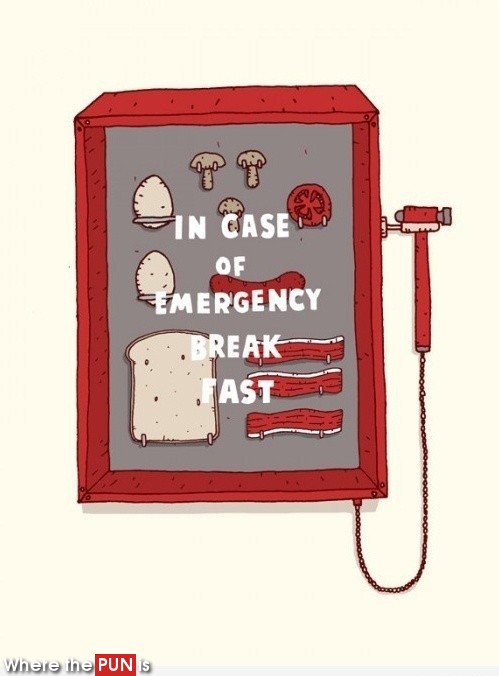
Examples
- "Look deep into our ryes."(slogan of Wigler's Bakery)
- Kings worry about a receding heir line.
"Caesar salad" (Scissor salad) in an Italian accent:
Customer: "I'd like a Caesar salad.
Italian waiter: "Sir! Are you sure you want the Scissor salad? You'll cut your mouth!"
- A pessimist's blood type is b-negative.
- When two egotists meet, it's an I for an I.
Zeugma
A rhetorical term for the use of a word to modify or govern two or more words although its use may be grammatically or logically correct with only one.

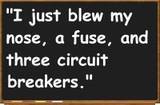
Examples:
- "The farmers in the valley grew potatoes, peanuts, and bored." (Wunderland)
- "She opened her door and her heart to the orphan." (Wunderland)
- "He opened his mind and his wallet at the movies."
- "She batted her eyelashes and third." (Words & Stuff)
- "He fished for compliments and for trout." (Words & Stuff)
Irony
Irony is an implied discrepancy between what is said and what is meant. The use of words to convey the opposite of their literal meaning; a statement or situation where the meaning is contradicted by the appearance or presentation of the idea.
Three kinds of irony:
1. verbal irony is when an author says one thing and means something else.
2. dramatic irony is when an audience perceives something that a character in the literature does not know.
3. irony of situation is a discrepency between the expected result and actual results.
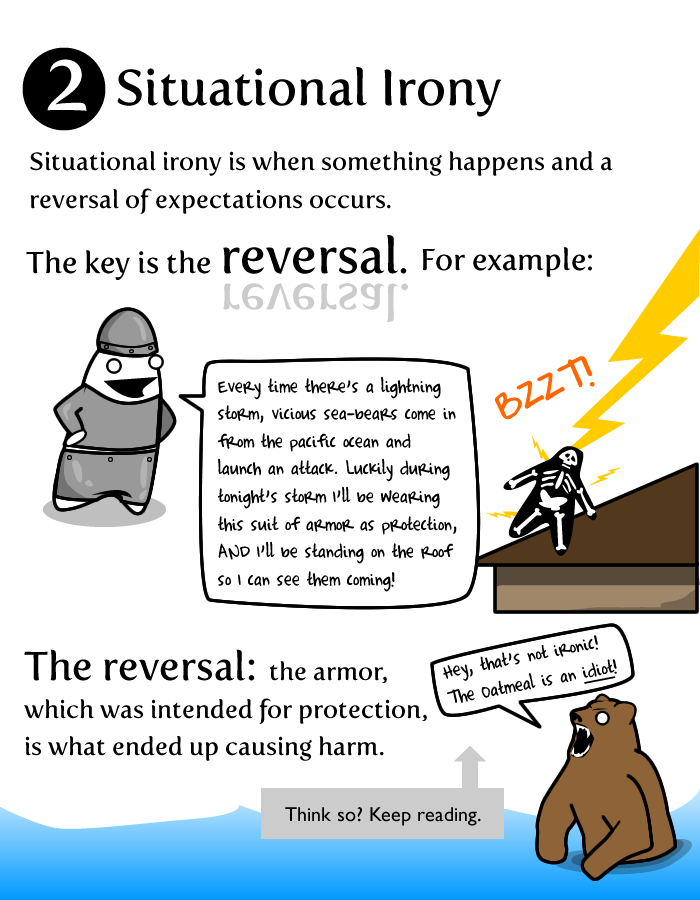
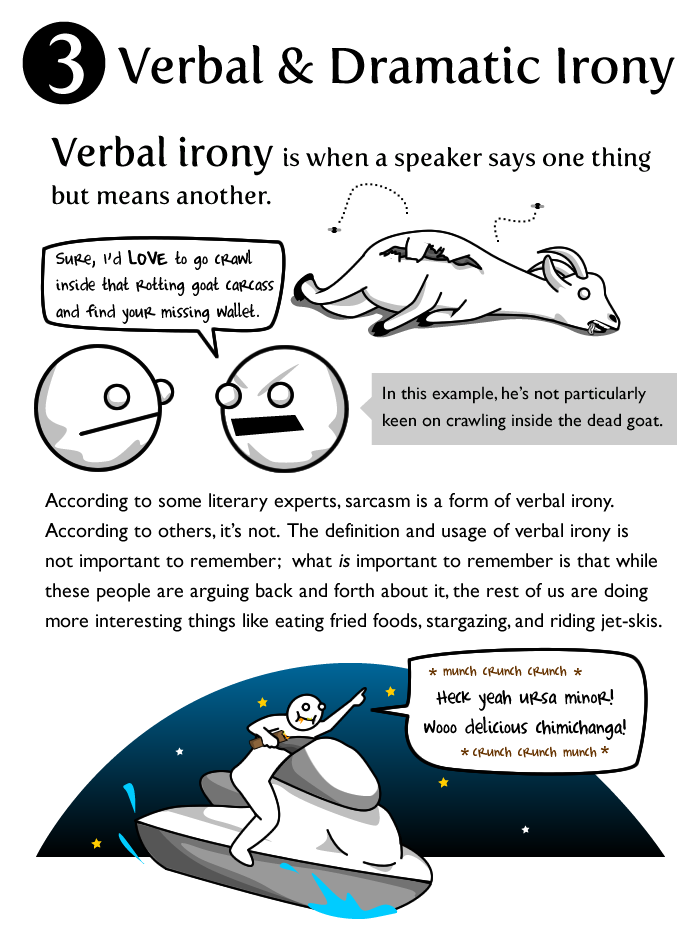
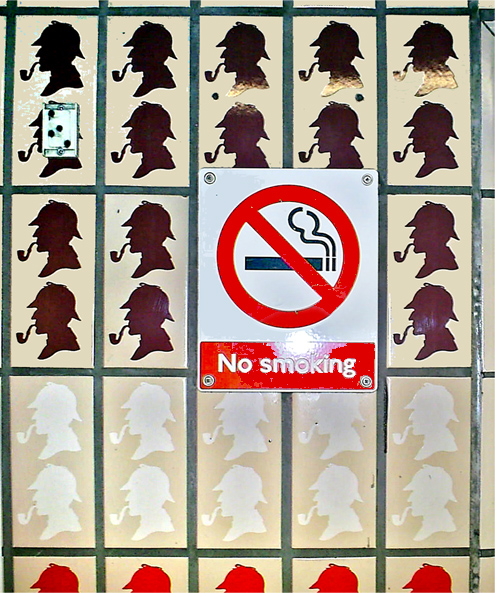
Examples:
- One of the identical twins says to the other, "You're ugly!"
- I saw a fish drowning.
- Many things can be preserved in alcohol. Dignity is not one of them.
- Never argue with a fool. People might not know the difference.
- The only reason there are evil people in the world is because there are good people in the world.
- A man died in his living room!
Malapropism
Absurd or humorous misuse of a word, especially by confusion with one of similar sound.
Malapropisms are sometimes called, more formally, phonological word substitutions.
Malapropisms do not occur only in fiction, as a comedic literary device. They also occur as a kind of speech error in ordinary speech.
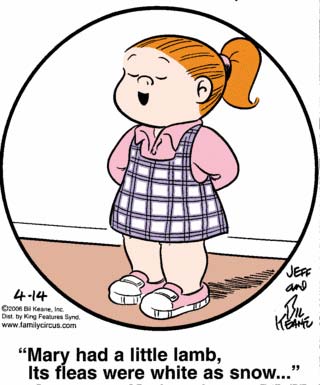
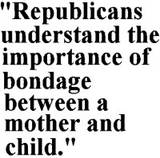
Examples:
- However, they delineate--quotas, I think, vulcanize society."(George W. Bush)
- "His physiognomy so grammatical!"(The Rivals)
- "A witness shall not bear falsies against thy neighbor."(Archie Bunker in All in the Family)
- Marie Scott... has really plummeted to the top."(Alan Weeks)
- "Listen to the blabbing brook."(Norm Crosby)
Antiproverbs
An anti-proverb or a perverb is the transformation of a standard proverb for humorous effect. Mieder defines them as "parodied, twisted, or fractured proverbs that reveal humorous or satirical speech play with traditional proverbial wisdom". They have also been defined as "an allusive distortion, parody, misapplication, or unexpected contextualization of a recognized proverb, usually for comic or satiric."
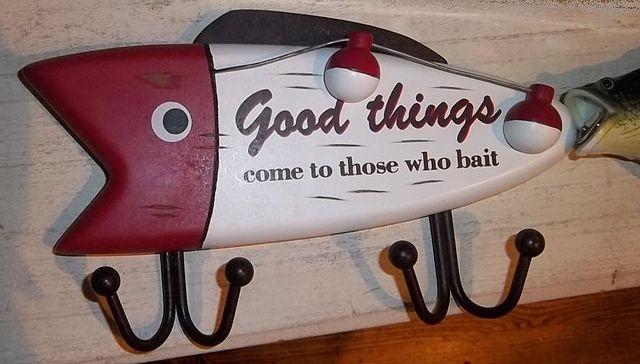
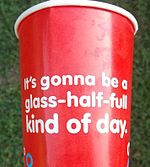
Examples:
- All good things come to those who wait
BUT
- Time and tide wait for none.
- There's no such thing as a free lunch.
BUT
- The best things in life are free
- A fool and his money is a friend indeed
("A fool and his money are soon apart" + "A friend in need is a friend indeed".)
- A rolling stone gets the worm.
("A rolling stone gathers no moss" + "The early bird gets the worm".)
The word has also been used for puns on proverbs:
- Slaughter is the best medicine.
("Laughter is the best medicine".)
- What doesn't kill you makes you stranger.
("What doesn't kill you makes you stronger".)
